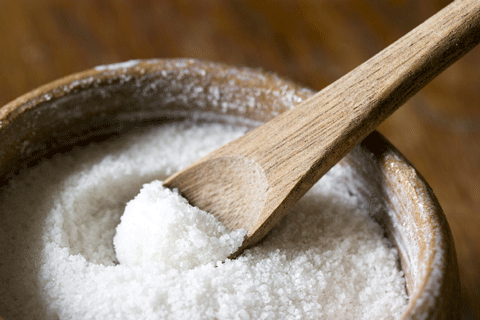
SEA CHANGE SEA SALT |
With the glut of food writers and culinary experts out there, it’s never been easier to dig up the cultural significance of a particular food. One of the oldest and most fundamental of them, salt, has experienced a renaissance the last few years, and the allure has spread far beyond the kitchen. The journalist Mark Kurlansky’s exhaustively traced the mineral through myriad cultures in 2002’s Salt: A World History, while food writer and entrepreneur Mark Bitterman has attempted to carve a professional niche for salt enthusiasts, coining the term selmelier for those with expertise on the only edible rock in his 2010 book Salted: A Manifesto on the World’s Most Essential Mineral.
(Before we go any further, allow us to acknowledge that salt is technically neither a spice nor an herb. It is, in fact, a mineral. But as it is used in much the same way — to enhance and intensify other food products — we are including it in this package.)
As is the case with many other foods, the interest for gourmet and exotic salt varieties, particularly sea salt, is rising. And while some of that fascination is fueled by gustatory hobbyists with elite tastes and wallets to match, the interest in sea salt comes from greater instincts, including sustainable industry, non-factory methods, and health.
That’s where Maine comes in. A surfeit of salt manufacturers have cropped up in the state over the last few years, harvesting salt near the immense Bay of Fundy on the Atlantic coast by the Gulf of Maine. The Bay of Fundy boasts the greatest tidal range in the world (upwards of 50 feet), which makes the region a primary resource for independent harvesters, all of whom are eager to note the differences between sea salt, which has a mineral content of around 30 percent, and mass-produced table salt, where minerals are filtered out and trace anti-caking chemicals are added.
One of those operations is the Maine Sea Salt Company, started by Stephen and Sharon Cook in 1998. The Cooks truck large quantities of sea water from Buck’s Harbor to their facility in Marshfield, where it slowly evaporates in a pond that is itself located within a greenhouse.
“I explored a lot of different methods,” explains Stephen Cook. “Boiling sea water, using technology, reverse osmosis. We realized that all of it required a lot of energy. We wanted our story to be appealing and natural and have benefits to society, so we decided it should be a solar operation, and that’s the method we use today.”
Both Mainers, the Cooks were lured to the Downeast region because of the area’s pristine waters, which benefit from particular Atlantic tides as well as the absence of heavy industry and pollution. And as more food enthusiasts find the differences between sea salt varieties, one of local manufacturers’ greatest assets is their ability to offer salt that isn’t mechanically altered.
“The difference is in the texture,” Cook says. “Most sea salts from around the world are processed, and they become dried and very hard like rock salt.” Quoddy Mist, another Bay of Fundy sea salt company, likens
the difference to white bread and whole wheat.